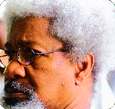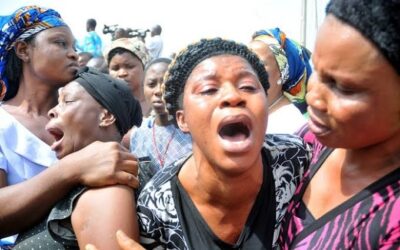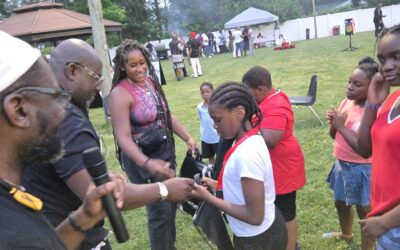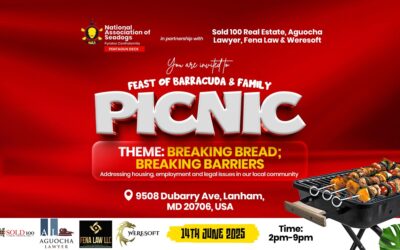Text of a lecture delivered by Nobel Laureate, Professor Wole Soyinka, as part of activities marking the centenal birthday celebration of Chief Obafemi Awolowo held at the MUSON Centre, Lagos, on Tuesday, March 3.
We all recall who first designated Nigeria a mere ‘geographical expression’ – none other than the Sage of Ikenne, the centennial of whose birth we are celebrating today – Chief Obafemi Awolowo. Many of our thinking compatriots understood exactly what he meant, and agreed. Others declared that this choice of expression, right or wrong, did give some serious food for thought, constituted a challenge to turn aspiration into reality. And yet others, some of whom understood only too well what he meant, took fright and went into a denial seizure, only generously described as ultra-nationalism: how dared this politician diminish the stature of ‘our dear own fatherland’, the ‘giant of Africa’ with such a reductionist phrase! He had questioned our ‘sovereignty’, never mind the realities that gave a fundamental dubiety to that presumptive ascription – nation. To accept the possibility that the space designated Nigeria had not yet attained nation reality meant hard work, a determination of mind and energy. It implied the exertion of intelligence, the bond of collective desire and the ethics of inclusion. A nation is brought into being through the political – and inclusive – will of its citizens, not through mere naming. I can name my dog Bill. Because some bipeds also bear the name of Bill does not make my dog a human being.
On my part, I have had cause to refer to the entity known as Nigeria as a nation space. It was, for me a convenient way of avoiding a pointless debate that would distract attention from whatever concerns I was engaged upon at the time. Quite simply, ‘nation space’ renders palpable the notion of Nigeria , advances it from mere representation from the printed atlas and places it on terra firma. We are all occupants of space, so we can jettison all fears that perhaps, in reality, we are a mere figment of the world’s imagination. The entire world knows where to find us.
When they do find us however, that is, when they explore the contents of that space, probe its interstices and enter both negatives and positives in the ledger sheets of national existence, what do they find? A nation? Or a mere inhabited slab of real estate with no cohering philosophy of reproducing our existence, of harmonizing co-existence, or integrating the constituent parts into a discernable, functioning whole – all of which transform a mere nation space into true nationhood?
But perhaps, before proceeding further, we should align our minds with a few definitions, just to ensure that we are not thinking at cross-purposes. Certain terms, seemingly familiar to all, will come into use. They are ordinary enough but they carry different meanings to different users – terms such as ‘state’, ‘community’ and indeed ‘nation’ itself. Let me clarify the way I intend to deploy them, with a few illustrations, just to avoid all ambiguity. First, we should bear in mind that when I speak of nation, I intend nation with both a small letter ‘n’ and a capital ‘N’. To refer to the Ijaw, Ashanti or Serbian nation for instance, simply recognizes the fact that these terms are in current usage and remind us of certain historic claims. We should however conceive of such entities with the smaller ‘n’, since they have been superceded by a conglomerate now known as Nigeria, Ghana or Yugoslavia, all of which we shall now conveniently refer to as nations with a capital ‘N’. It does not imply that what passes for the Nigerian nation is more viable or more socio-politically grounded than any of its component small ‘n’ nationalities. The annual budget of the state of California, I am informed, exceeds that of the rest of the United States, but if I were to speak of the United States as being composed of a supposed California nationality plus others, I would still use the small ‘n’ for California. Fortunately California does not aspire to any such recognition, even though we should bear in mind that Puerto Rico still remains disunited over its loss of nationhood.
‘Community’ is another word that should be understood as being used with both small and capital ‘c’. We do not have to be Darwinians to accept that all organisms evolve in an upward hierarchical fashion – mind you I’m not really sure if humanity truly qualifies, from its record, as an improvement on the uni-cellular amoeba, but we must not get distracted. Let’s assume that homo sapiens is indeed at the apex of the living species. ‘Nation’, both as small and capital ‘N’’ is considered a higher level of social organization of the community, or shall we simply say that, for reasons best known to human beings, communities aspire towards an upward rung of the ladder, nation, in the hierarchy of social organization. And this is where the ladder of upward mobility appears to break down, confronting us with certain paradoxes. I am suggesting that community never completely loses its attractions as present reality and potential destination, so that we find today that nations actually struggle to return to that basic formulation, community, offering up negotiated portions of their national sovereignties as entry fee for admission. Thus, the European Community, formally known as the European Union. The French colonial power recognized the attraction of that broader group identity, one that appears closer to basic family, or clan bonds. They dangled it before their colonies as a desirable goal, even while reassuring them of their autonomy by conceding their right to continue to call themselves nations. That larger grouping should be read as Community with a capital ‘C’. The British named their own Community the British Commonwealth, taking out the ‘British’ under rumblings of radical defection. No parliamentarians were invited from other parts of the Commonwealth to Westminster, unlike the French.
One after another, member nations began to cut even the loose apron strings by declaring themselves republics, freeing their judiciary from the British Privy Council, removing the Queen as the titular head of each member state, rubbing out her face from national stamps and national currencies, stripping her of the right to nominate a representative, called Governor-General, as a ceremonial head of state and her representative etc. etc. and, finally reducing Her Majesty to no more than a symbolic head of a loose organisation of nominal equals. Furtively, the British smiled. They let the radicals have their say, even their way, but maintained their sway. The deed was already done: census figures had been cooked, pre-independence elections rigged – by the departing overlords – and their surrogates installed in power. Those who wish to continue to dispute this are invited to consult the massive compilation of de-classified papers – DOCUMENTS OF THE END OF THE BRITISH EMPIRE – published by the British government itself. Reinforcing that process, the internal primary community – the small ‘c’ constituent identities of member nations – Itsekiri, Ashanti, Igbo, Hausa, Ewe, Luo etc, were weakened, state strength consolidated, while Commonwealth/ Community – capital ‘Cs’ – contented itself with the trappings of a moral force.




